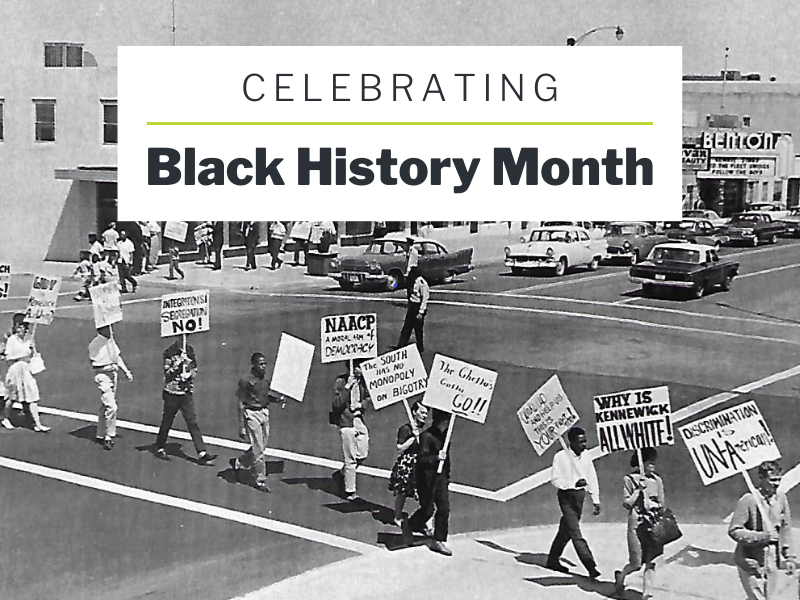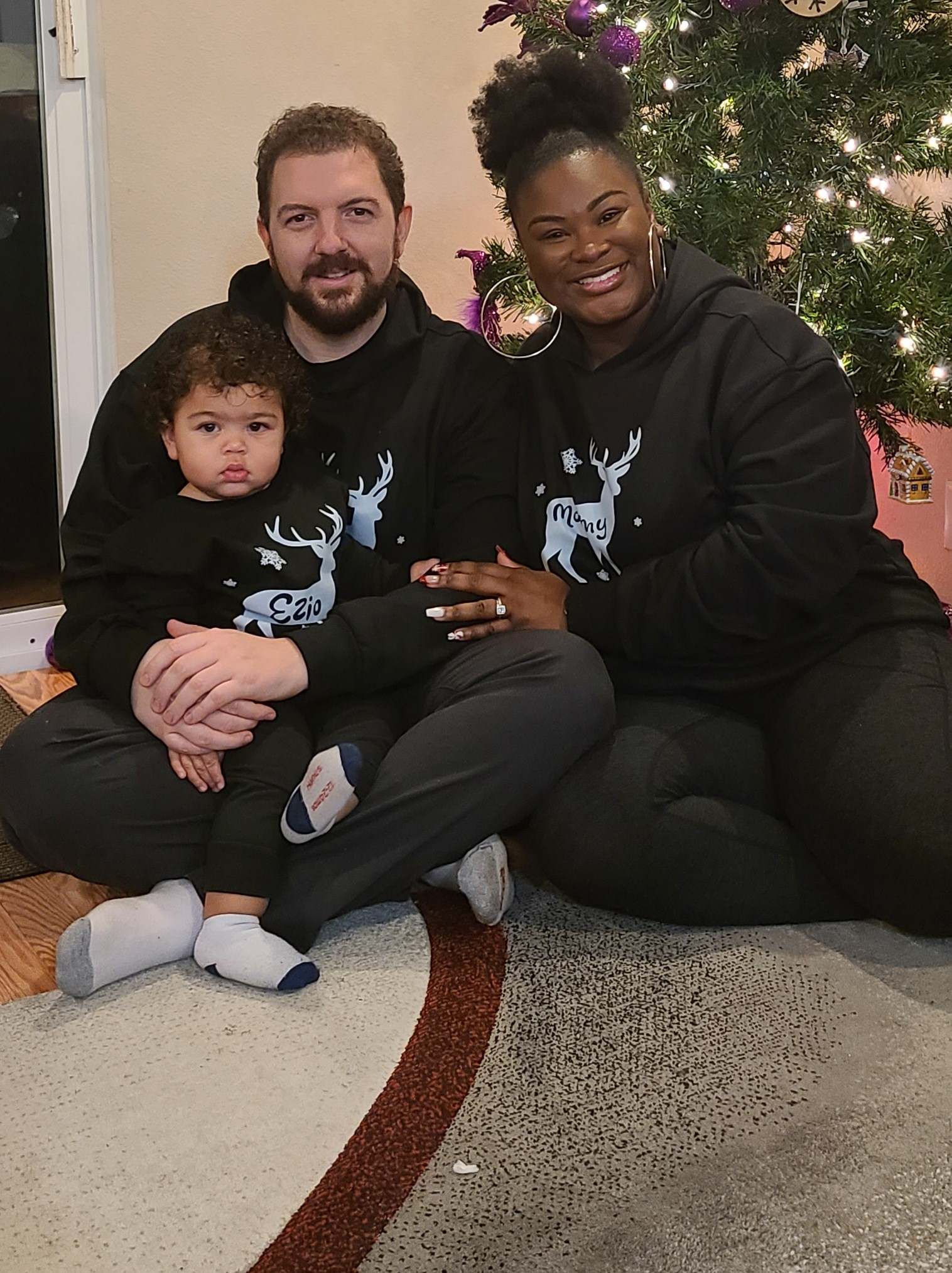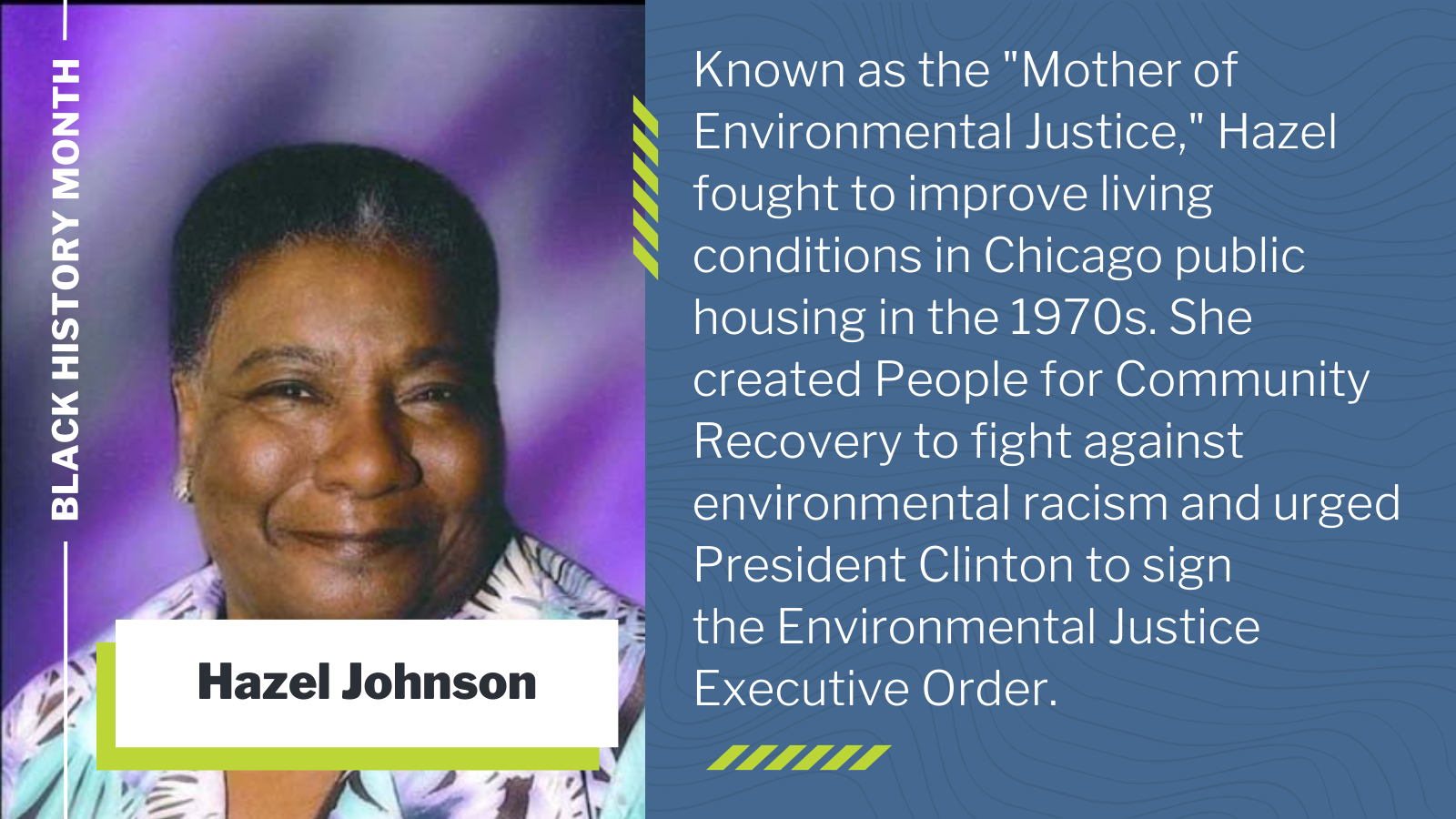
During Black History Month, we are sharing stories of some of our team members and highlighting environmental heroes who fought for environmental justice and a clean and healthy environment.
One of our newest colleagues, Alexiauna Beleford of Staff Services, has graciously offered to tell us about her work in support of our environmental mission and to share from her own perspective through the lens of her cultural influences. Thanks, Alexiauna!
As a state environmental agency with an environmental-justice focus, we recruit staff from as wide a cultural field as possible and strive to create a culture of belonging. If you are interested in joining our team, please check our job listings. Without further ado, here is Alexiauna.
With the agency’s mission to ground me
When I first considered working for the Washington Department of Ecology, I took time to reflect on what ecology really meant. I reviewed the definition of the word “ecology” and the agency’s mission to ground me. My takeaway is that ecology in meaning as a word and as an agency, is about relationship between living things. It’s about making our world a better place for everything, people and nature alike.
Setting our team up for success
I work in Staff Services, the division that supports the infrastructure of the agency and keeps our team members moving and doing, both inside and outside our organization. Every day at Ecology is different for me, and I like it that way. I embrace diversity in my work and don’t like to be stagnant.
My role in supporting infrastructure and services gives me an opportunity to learn about the vast work we perform. I recently helped someone in the Washington Conservation Corps. He was reserving vehicles to get our Corps members to the airport. They were flying to Florida to support the hurricane disaster-recovery efforts. There is a group of people who literally want to help, and that touched me, because the number-one thing I love doing is helping those who need it.
I also have learned about topics I hadn’t thought about before and weren’t on my radar. One such example is water rights to consider when you purchase a home or property. I was speaking with my supervisor Terrie Fields, and she was telling me about her experiences and what she learned when she was in Water Resources. I learned that if you live next to a body of water and want to use the water, you need to have water rights to access it legally.
Also, learning that there are specific programs for oil spills, or any other kind of toxic spills that happen, and even air pollution, really has put a lot into perspective for me.
I come from a HUGE family, so anything new I learn I am so happy that I can share that with them.
I appreciate all cultures
My family background is extremely diverse. My son is half black, half Greek/Italian. My niece and nephew are half black, half white and Japanese, my younger siblings are half Cambodian; the list goes on. But I am proud to have come from such strong, educated, intelligent, well-spoken, and wise, black women and men. I am proud to be an African American woman and to be able to share my experiences, my culture, and background, is always something that I am proud to do.
My son is going to grow up in a world that was completely different from mine and, although I am a bit nervous, I know that my husband, my family, my husband’s family, and my dear friends will help him navigate this “new world.”
Inspiration for others
Always be kind, always appreciate life. Be open to new experiences.
Black environmental leaders in history
Throughout this month, we are raising up the stories of Black environmental leaders, both in and outside our agency.
As our new Office of Equity and Environmental Justice moves forward prioritizing environmental justice in our work, we remain constantly inspired by brave and brilliant people such as the Black environmental hero Hazel Johnson.
Hazel Johnson
Hazel Johnson was called “the Mother of Environmental Justice” by sociologist and author David Pellow. According to Wikipedia and the website of the nonprofit Hazel Johnson founded, she was a leader in the fight against environmental racism.
She witnessed health disparities and cataloged pollution sources in Chicago's Altgelt Gardens Homes housing project. With the help of her daughter, in-training as a chemist, she tracked down sources of toxic contamination and worked to hold the Chicago Housing Authority responsible for improving the safety of public housing across the south side of Chicago in the 1960s and 1970s.
Hazel Johnson worked tirelessly through most of her life to protect her neighbors from the environmental-health damage brought on by racial inequities and callous disregard for safety in redlined neighborhoods. Much of her later work was carried on through her nonprofit organization, People for Community Recovery. Johnson died in 2011 at the age of 75.
Learning and action
- Check out Hazel M. Johnson on her Wikipedia page, and dig into sources there to learn more about Hazel Johnson’s life and career in Chicago.
- Look for ways to stand up for disproportionately impacted people and overburdened communities; do your part.
- Look around your own neighborhood to see what you can do to participate in pollution prevention and cleanup.
- Attend the Let's talk about Black History at Hanford talk on Feb. 28, 2023, at 5:30 p.m. via Facebook Live and Zoom.



